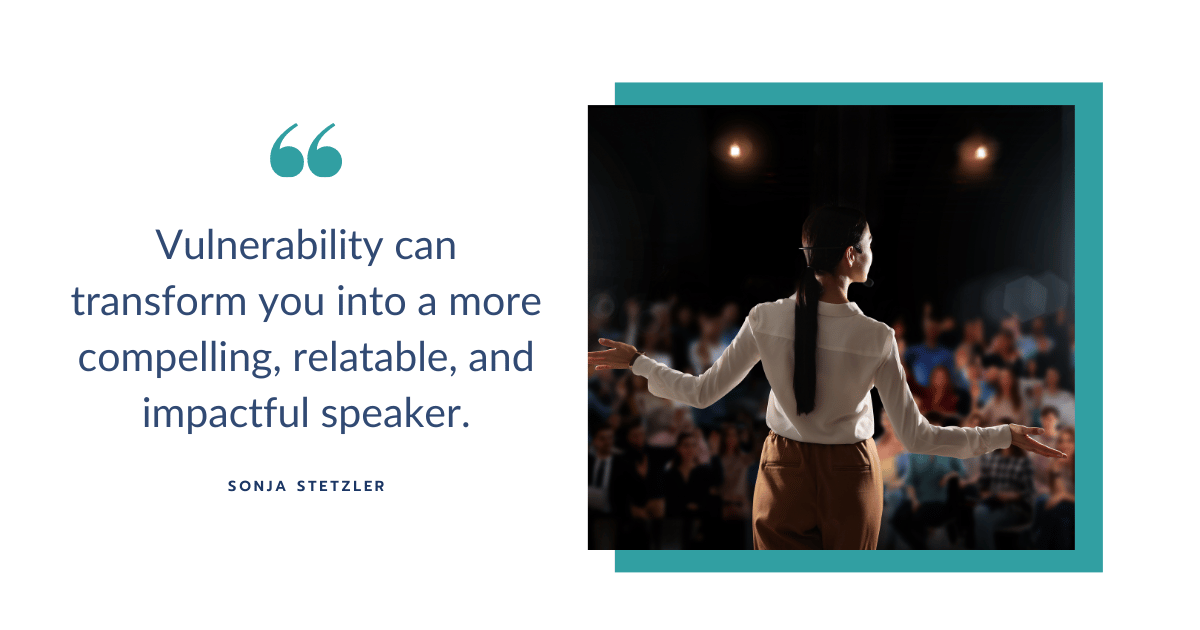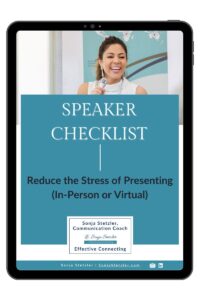Transform into a more compelling, relatable speaker by being vulnerable.
I recently worked with a client on crafting a presentation for her organization’s internal conference. She had a compelling story she wanted to share, yet wondered how much detail she should share.
The question that arose was how vulnerable is too vulnerable? When does sharing too many details of your story become “too much information”?
Vulnerability can make you a better speaker in several ways:
1. Engagement
Vulnerability often entails revealing uncertainties, doubts, or mistakes. This can be engaging for your audience because it shows humility and openness to learning.
It invites them into your journey, makes your message more compelling, encourages them to reflect on their own experiences and challenges, and builds trust with your audience.
2. Authenticity
When you allow yourself to be vulnerable, you become more authentic. Audiences appreciate speakers who are genuine and relatable. Sharing personal experiences, struggles, and emotions can create a deeper connection with your audience because they see you as a real person rather than just a presenter.
3. Emotional Connection
Vulnerability evokes emotions. When you share your vulnerabilities, it can stir empathy and compassion in your audience. This emotional connection makes your message more impactful and memorable. People are more likely to remember stories than presentations filled with data.
4. Inspiration
Sharing how you’ve overcome vulnerabilities or setbacks can inspire others. It shows that it’s okay to struggle and make mistakes, but what matters most is how you bounce back and grow from those experiences.
Your vulnerability can motivate others to persevere through their own difficulties and become more resilient.
Balancing Act
Despite the upsides to sharing vulnerabilities, there are downsides. Excessive details can bore and disengage an audience and can dilute your message and impact.
If you are too emotionally affected by the story you are telling, it indicates that it is too soon to share, and more time is needed before sharing with your audience. Your audience wants to feel that you care about them, so don’t make them uncomfortable by not taking care of yourself.
It is important to strike the right balance and focus on the most relevant and impactful details that directly support your message.
Overall, vulnerability can transform you into a more compelling, relatable, and impactful speaker, capable of forging deeper connections with your audience.
Have you used vulnerability during your presentations? Comment below and share your experiences.
Enter your name and email below to grab my FREE Speaker Checklist to feel fully prepared and confident to deliver your very best.


